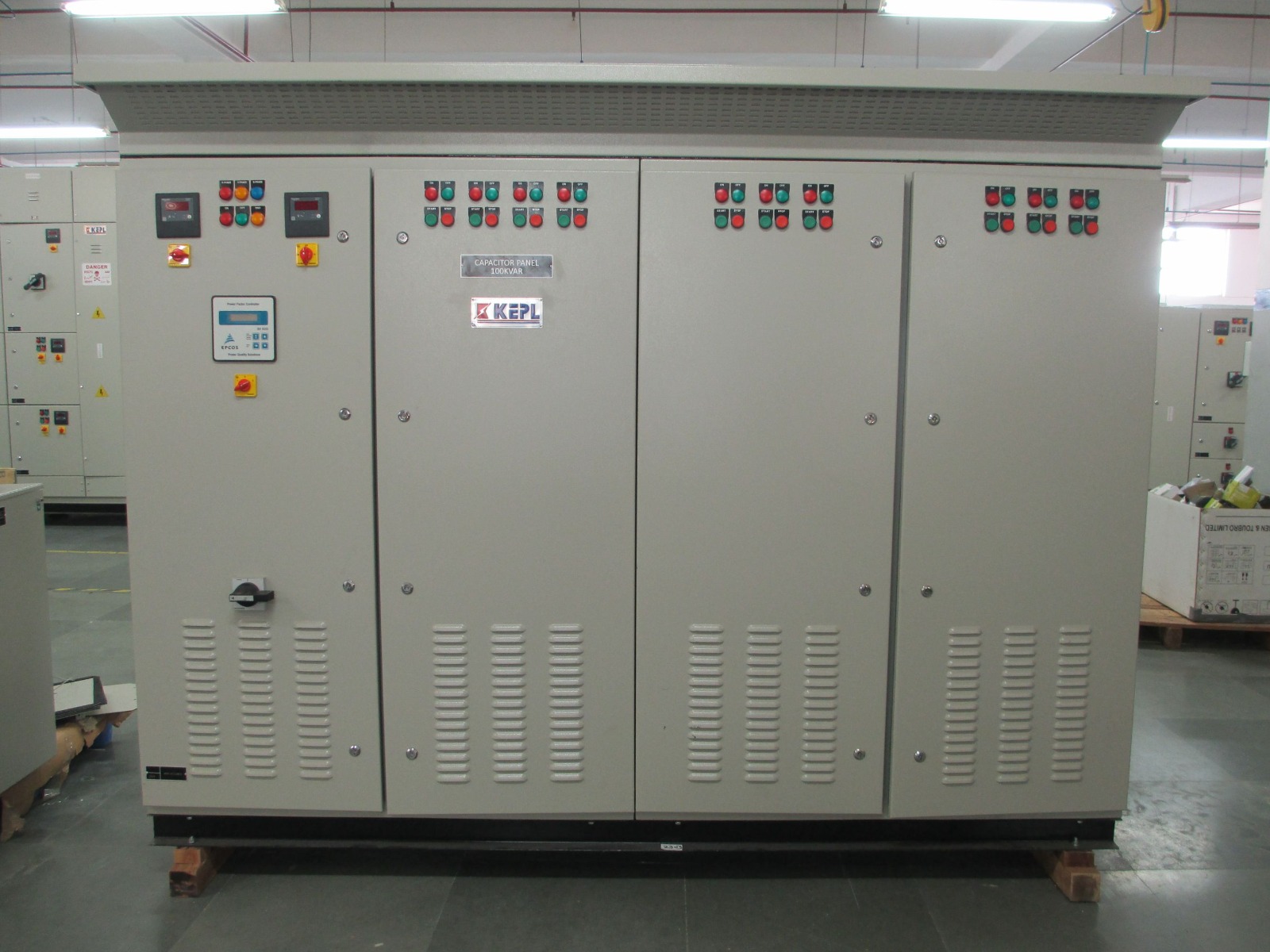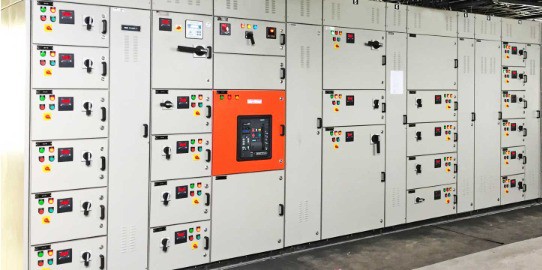Motor Control Centre (MCC) Panels
MCC, or Motor Control Center, is a vital component in industrial settings that plays a crucial role in controlling and managing electric motors. These panels act as centralized hubs for motor control, ensuring seamless operation in complex industrial environments.
Significance in Industrial Settings
In any industrial facility, efficiency and safety are paramount. MCC panels facilitate streamlined operations, providing a centralized platform for motor management, safety features, and remote control.
Components of an MCC Panel
An MCC panel is a sophisticated assembly of various components working together to ensure the smooth functioning of motors and the safety of personnel. Here are the key elements:
A. Main Circuit Breaker
The main circuit breaker acts as a guardian, protecting the system from overloads and short circuits. It is the first line of defence, disconnecting the power supply in case of emergencies.
B. Motor Starters
These are the heartbeat of MCC panels. Motor starters initiate and control the speed and direction of motors, allowing for precise operation and preventing damage due to sudden power surges.
C. Overload Protection
Overload protection mechanisms are crucial in safeguarding motors from overheating and potential damage. They monitor the current flow, intervening when levels exceed safe thresholds.
D. Control Circuits
Control circuits are the brain of the MCC panel, managing the logic and commands that regulate motor functions. They ensure that motors respond accurately to input.
E. Busbars and Connections
Busbars serve as the circulatory system, distributing power to various components within the panel. Their design ensures efficient power flow and minimizes energy loss.
Functions of MCC Panels
Understanding the multifaceted functions of MCC panels provides insight into their importance:
A. Motor Control and Operation
MCC panels grant precise control over motors, allowing for variable speeds, start-stop functionality, and reverse operation. This level of control is essential for diverse industrial processes.
B. Safety and Protection Features
Safety is paramount in any industrial environment. MCC panels incorporate features like circuit breakers and overload protection to mitigate risks and protect both equipment and personnel.
C. Remote Monitoring and Control
Modern MCC panels are equipped with remote monitoring capabilities. This allows operators to oversee operations from a distance, enhancing efficiency and safety.
Types of MCC Panels
There are different types of MCC panels, each catering to specific industrial needs:
A. Fixed Type MCC Panels
These panels have components permanently mounted, offering stability and durability, making them ideal for applications with consistent motor control requirements.
B. Drawout Type MCC Panels
Drawout panels allow for easy removal and replacement of components, simplifying maintenance and repairs without disrupting operations.
C. Plug-in Type MCC Panels
Plug-in panels are designed for flexibility, allowing for the addition or removal of units as per changing operational demands.
Installation and Maintenance
A. Proper Placement and Wiring
Correct placement of MCC panels ensures optimal performance. Additionally, meticulous wiring is crucial to prevent short circuits and ensure the longevity of components.
B. Routine Inspection and Checks
Regular checks for loose connections, wear and tear, and signs of overheating are essential in preventing unexpected failures and downtime.
C. Troubleshooting Common Issues
A well-trained maintenance team should be capable of identifying and rectifying common problems swiftly, minimizing disruptions to operations.
Advantages of Using MCC Panels
A. Enhanced Safety
MCC panels provide a secure environment by incorporating various safety features, reducing the risk of accidents and equipment damage.
B. Improved Efficiency and Productivity
The precise control offered by MCC panels leads to optimized operations, resulting in increased productivity and cost savings in the long run.
C. Cost-Effectiveness in the Long Run
While the initial investment may seem substantial, the efficiency and protection MCC panels offer translate into significant cost savings over time.
Applications of MCC Panels
A. Manufacturing Industries
MCC panels find extensive use in manufacturing plants, where they regulate processes across various industries, from automotive to pharmaceuticals.
B. Power Plants
In power generation facilities, MCC panels play a pivotal role in managing motors responsible for the production and distribution of electricity.
C. Commercial Buildings
Even in commercial settings, MCC panels are employed to control motors in systems such as elevators, HVAC, and water pumps, ensuring smooth building operations.
Future Trends and Innovations in MCC Panels
As technology advances, MCC panels are expected to incorporate smart features for enhanced automation, energy efficiency, and sustainability, aligning with the broader goals of environmental conservation.
Conclusion
Recap of MCC Panel Importance
MCC panels are the unsung heroes of industrial operations, ensuring motors run efficiently and safely. Their role in modern industry cannot be overstated.
Encouragement for Proper Installation and Maintenance
Proper installation and regular maintenance are essential to maximize the lifespan and effectiveness of MCC panels. Investing in these practices is an investment in the longevity and efficiency of industrial operations.







